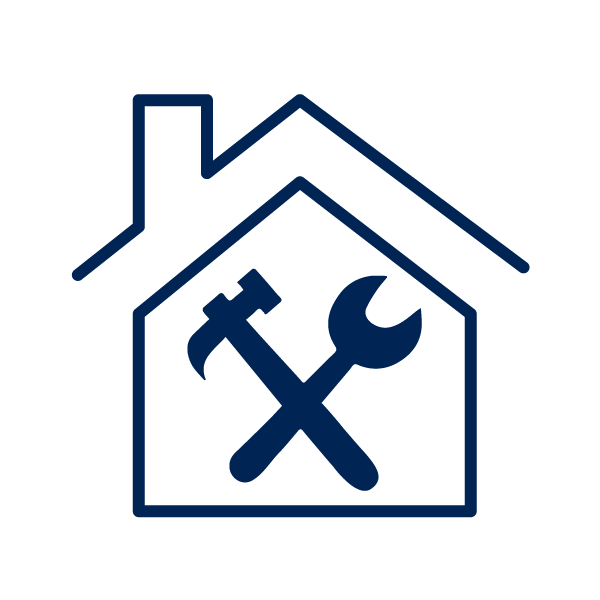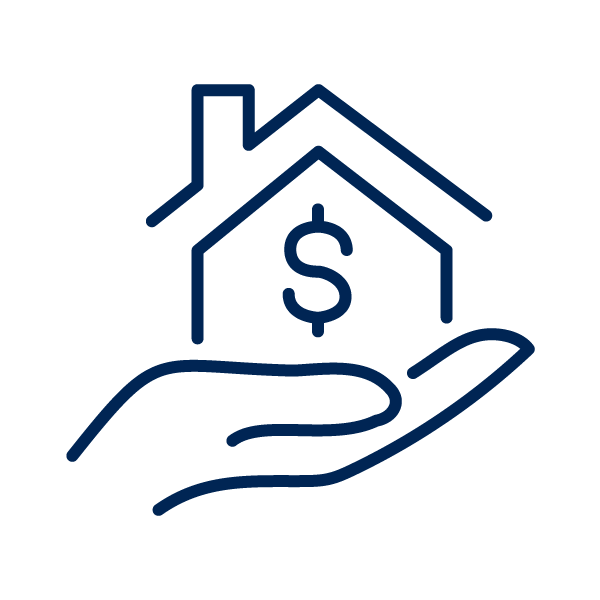Buying a home is a major event and one that should be approached with careful consideration and research. While it can be easy for homebuyers to get caught up with the perfect house, doing your due diligence and addressing key questions about the property, the market, and the transaction are crucial to ensuring a smooth process and a fair house offer.
Here are eight questions to ask – and answer – before putting an offer on a residential house.
1. How long has the property been on the market? |
1. How long has the property been on the market?Knowing the length of time the property has been listed can give you great insight into the seller’s motivation and inform a fair house offer. If the property has just been on the market a few days, for instance, and is generating a lot of interest from potential buyers, it may signal that the house will sell for at least its asking price (if not more) and your offer will need to reflect the demand. If, on the other hand, the property has been on the market 100+ days, it may be an indication that the property has some flaws, the asking price is too high, the décor does not match the taste of most buyers or a previous offer fell through. The longer a home is on the market, the more motivated an owner may be to sell. |
2. Are there any major issues or renovations needed? |
2. Are there any major issues or renovations needed?In today’s real estate market, many sellers will “stage” their homes in preparation for sale. This means they may give their home a fresh coat of paint, repair any surface issues, and bring in perfectly sized and appealing furnishings to best show off the property. While these steps can make a house more attractive to buyers, they can also mask potential issues. Before placing an offer, it’s important to thoroughly evaluate the property’s condition. It’s wise to conduct a home inspection with a certified home inspector to identify potential problems or necessary repairs. A home inspector will be able to assess areas that are difficult to evaluate with the naked eye, such as the heating and cooling systems, the roof, the plumbing and the foundation, and let you know of the associated costs involved in any necessary repairs. This step can help inform your offer and help ensure you do not overpay for the property. |
3. What is the history of recent sales in the area? |
3. What is the history of recent sales in the area?When making an offer on a home, it’s always good to have a benchmark – and knowing the history of residential home sales in the area you’re looking at is a great place to start. Your realtor can easily access a listing of recent sales of comparable homes so you can have a strong idea of what your offer should be. When looking at the list, be sure to consider the size of the homes, the size and location of the lots, the level of upgrades and the specific timeframe of the sales. Keep in mind, the real estate market can change considerably over just a few months! |
4. What’s the neighbourhood like? |
4. What’s the neighbourhood like?As they say in real estate, “location, location, location.” This means that similar homes could be priced very differently depending on where they are located. As a buyer, you’ll want to ensure that the location of your prospective home is in a neighbourhood that checks the boxes of where you want to live. Is the home close to schools, public transportation and parks? Is the neighbourhood walking distance to shops and restaurants – and is this important to you? What is the crime rate and are there future development plans that might affect the current feel of the area? While you evaluate the neighbourhood, it’s also important to consider the exact location of the property you’re thinking about and understand the traffic patterns on the street. For example, you may view the house on a quiet Sunday afternoon, but come Monday, the street could prove to be a main artery for school drop off and pick up, or a busy bus route. If it’s a corner lot, try to find out if the front yard is a common shortcut for walkers. Learning as much about the neighbours as possible is also a great idea – understanding if they have loud pets, if they are conscientious about their lawn and garden, and if they are generally friendly people is great information to have in advance. These small details can add up to a significant impact on the long-term enjoyment of the home! |
5. What are the property taxes and other monthly expenses? |
5. What are the property taxes and other monthly expenses?Aside from your mortgage, your property tax bill is likely the single largest homeownership expense for you to manage. Planning and preparing for your property taxes – as well as other costs such as water and utility costs, waste collection fees, and insurance – can help you go into your house offer with your eyes wide open. It’s also smart to have a good handle on the closing costs of the property should your offer be successful, so you know how your home buying budget stacks up to the expenses ahead of you. |
6. Have there been other offers or price adjustments? |
6. Have there been other offers or price adjustments?Having insight into the activity around the home while it’s been on the market – such as the history of offers or price adjustments – can help you determine what your offer will look like. If the seller has turned down other offers, for example, that may signal that they are not willing to budge on price. If the price of the home has come down while it’s been for sale, however, it may indicate that the seller is motivated to make a deal. |
7. Is this a buyer’s market or a seller’s market? |
7. Is this a buyer’s market or a seller’s market?As you consider your offer, consider the current conditions of the real estate market. If you’re in a buyer’s market and homes are taking a while to sell, you may have more leverage and be in a position to offer a price that’s lower than what the seller is asking. If you’re in a seller’s market – where homes are selling quickly, and bidding wars are moving prices upwards – you may need to offer more than the asking price and keep conditions to a minimum if you want to close the deal. It's important to keep in mind that if you are placing an offer in a seller’s market, you maintain your homebuying budget and avoid foregoing important steps such as a home inspection. Many homebuyers have been caught over-extending themselves financially by getting consumed by a bidding war, or spending considerable amounts on repairs when they passed up their opportunity to get a home inspection. |
8. What are the terms and conditions of the sale? |
8. What are the terms and conditions of the sale?When you get to the point that you’re ready to put an offer on a house, you’ll want to think about the finer details of the transaction. Determine your desired closing date, whether you would like to include any furnishings in addition to the appliances and fixtures, and what financing and home inspection conditions will involve. Your offer may be signed back by the seller with changes to these conditions, so review the offer agreement carefully if it does come back to you. Putting an offer on a home is a milestone step in the homebuying process and it’s not something that’s easily done on your own. Having your home buying team on standby – including your realtor, lawyer, mortgage broker, and home inspector – will be important throughout this process to ensure a smooth and straightforward transaction. It’s also crucial to review the steps to take before putting in an offer so that you’re fully informed about your next move – both during the offer stage and into your future as a homeowner. |
Connect with an MCAP Expert Today
If you’re looking for expert advice or have any questions about your home buying journey, reach out to a mortgage broker using our find a mortgage broker tool to get started.




